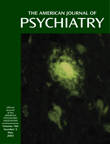DSM-IV-TR in Action
This handbook, by Sophia F. Dziegielewski, professor in the School of Social Work, University of Central Florida, Orlando, focuses on practice strategies in today’s managed care environment. The author demonstrates a client-centered, context-sensitive approach to the application of DSM-IV-TR in clinical practice. The book shows how to complete a clinical assessment and prepare a treatment plan, and it gives numerous examples. It starts with a section describing how to use DSM-IV-TR for assessment, planning, and practice strategy. It gives basic information on the classification system, on documentation and multiaxial diagnostic assessment, and on applications beyond diagnostic assessment. The second part of the book presents applications to selected disorders. These chapters have been written in collaboration with a number of coauthors, all of whom are mental health practitioners. This book aims to be practical, and critical considerations of the DSM classification system are lacking, although the author acknowledges controversies. One may welcome it as a useful addition to the basic DSM-IV-TR handbook, but it is not without its problems.
I read this book with mixed feelings. It is not about patients but about clients, and it is about helping and counseling, not about treating. It seems to have been the author’s primary intent to help nonmedically trained mental health practitioners accept the medically oriented DSM classification because that is inevitable in a competitive cost-driven health care system, and to use it in a refined manner. Although this is nowhere made explicit, the book is clearly aimed at clinically naive mental health trainees without a medical background. However, residents in psychiatry might certainly benefit from what, at first sight, appears to be a balanced approach. On the positive side, it offers a rich discussion of the basic principles and opportunities of DSM, beyond traditional medical approaches. On the negative side, however, it suffers from a lack of psychiatric expertise. Its treatment planning sections mainly suggest psychosocial interventions. When medical information is given, there are strange misspellings, loose definitions, puzzling preferences, and weak references. It would have benefited from a psychiatrist as coauthor, or at least from sound advice from a psychiatrist. The psychiatric profession is hardly ever mentioned. This is surprising because in other respects the book is well balanced. Its practical guidelines may be useful to any mental health practitioner, including trainees in psychiatry, but, unfortunately, it has severe shortcomings.



